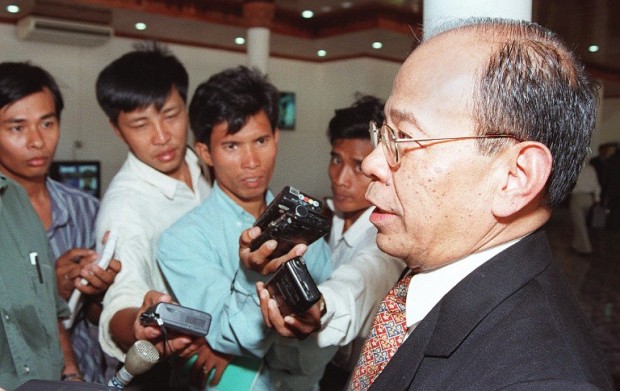Court acquits PH envoy to UN in graft case over fictitious expenses
A former Philippine representative to the United Nations was acquitted in a graft case for alleged fictitious representation expenses from 2003 to 2005.
In a resolution promulgated March 20, the Sandiganbayan Special Fourth Division granted Lauro Baja’s demurrer to evidence to dismiss his one count of graft for allegedly incurring non-existent or fictitious representation expenses amounting to $28,934.96 – $8,145; $11,100; and $9,689.96 for the years 2003, 2004, and 2005 respectively.
Bajo served as Philippine Permanent Representative to the United Nations and Chief of Mission I, Department of Foreign Affairs from 2003 to 2007.
In its resolution, the court said the prosecution failed to establish sufficient evidence to prove Baja caused the reimbursement of non-existent or fictitious representation expenses.
The court said it granted the demurrer to evidence, thus dismissing the case for insufficiency of evidence.
Article continues after this advertisement“This Court gives it to the prosecution that there was, indeed, improper documentation of reimbursement of expenses. Unfortunately, it could not lead to a conclusion that these documents, even if improper, are evidence of non-existent or fictitious transactions,” the court said.
Article continues after this advertisementThe court said the findings of the Commission on Audit (COA) and the Department of Foreign Affairs fact-finding team on deficiencies in the reimbursement were not enough to show the receipts were fictitious.
The COA noted the following observations on Baja’s reimbursement: checks issued to support the claim for reimbursement of amounts paid to waiters did not show presentment to the banks; payment made for the services of waiters was supported by temporary receipt only; only the photocopy of the check was submitted; purpose of the expenses were not indicated in the request for reimbursement; only temporary receipts were issued; receipts submitted did not contain the name of the payee.
Meanwhile, the DFA fact-finding team noted the following: temporary receipts were attached to the reimbursement requests; checks to support proof of payment for reimbursement were mere photocopies; the amount stated in the receipt was unusually high and the handwriting unrecognizable.
But the court said these reports were not enough to establish the reimbursement expenses were fictitious to have caused injury to government.
“Are these irregularities in the supporting documents for reimbursement sufficient to establish that the accused sought reimbursements for non-existent or fictitious representation expenses? This Court answers in the negative,” the court said.
The court added that the prosecution should have presented more evidence to prove that the checks issued by Baja as payment for the service of waiters, purchase of food, and caterers were never negotiated or paid to them.
“The fact that there were originals or even photocopies of the checks without any proof that these were negotiated at the issuing bank alone is not sufficient proof that the expenses were non-existing or fictitious. It must be corroborated by some other forms of evidence,” the court said.
The court noted that the auditing and fact-finding team should have “delved deeper and made inquiries” whether or not these payments or expenses were indeed incurred.
The prosecution was only able to present a statement from a certain Mr. Sung, manager of the restaurant Azure, about Baja’s pricey luncheon expenses, but Sung did not categorically declare the receipts as fictitious.
“Certainly, the hearsay statements made by Mr. Sung of Azure could cast doubt on the authenticity of the two receipts that were submitted by accused Baja for reimbursement. But, it could not lead to certainty that the said receipts are fictitious or the entries therein fictitious,” the court said.
The resolution was penned by Associate Justice Geraldine Faith Econg and concurred in by Associate Justices Alex Quiroz and Reynaldo Cruz. JE/rga
